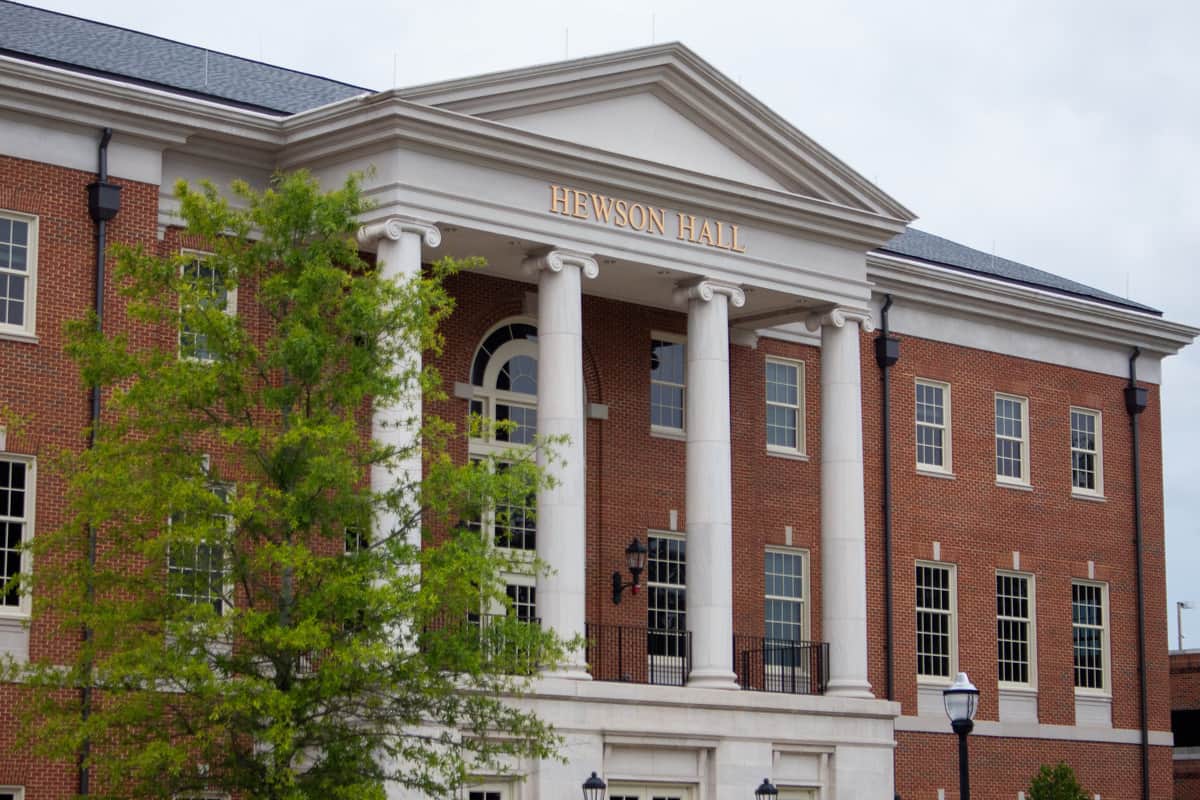Whom a society chooses to honor is very important. It shows not only what the values of the society are, but also the values it intends to teach and pass on to following generations.
Honoring is done in many ways. On our campus, however, few methods are as prevalent and long-lasting as the naming of a building.
There is an old biblical analogy that “it is easier for a camel to go through the eye of a needle than for a rich person to enter the kingdom of God.” It should be no surprise, then, that the people able to donate enough wealth that the University feels it has to name a building in their honor might not actually be worthy of such honor.
This potential contradiction is nothing new to The University of Alabama. The University is home to many buildings named after one-time venerated figures of Alabama history who, with the benefit of hindsight, are now seen as nothing more than the white supremacists that they were. In recent years, this has led to renaming several buildings on campus, because their original names did not reflect the “shared values” of the University.
The renaming of old buildings, or lack thereof, has already been discussed at length. Today, however, I want to discuss not some long-forgotten building named in honor of a dead governor, but the new, sleek, ode to bland neoclassical architecture that is Hewson Hall.
Hewson Hall, which opened in 2021, is named in honor of Marillyn and James Hewson. The couple generously contributed $15 million dollars toward the construction of the Culverhouse School of Business’ new pride and joy.
If, as was such a point of emphasis when the existing buildings were renamed, the University wants to honor only people who have “shared values” with the University by naming buildings after them, then that begs the question: What values do the Hewsons exemplify?
The Hewsons gained their wealth in large part through Marillyn Hewson’s near-40-year career at Lockheed Martin, where she served most recently as chief executive officer.
Lockheed Martin is a defense manufacturer. Part of the military-industrial complex, it is the largest client of weapons manufacturing for the United States Defense Department. Its products are also exported to more than 70 other countries.
If the United States military has been involved, then odds are, so has Lockheed Martin. Lockheed Martin was involved in the war in Iraq that left hundreds of thousands, if not millions of civilians dead, and Saudi Arabia’s intervention in Yemen where endless war crimes are still being committed. Perhaps most relevant today is the war in Israel and Gaza. Lockheed Martin has been working closely with Israel since 2004.
In fact, the start of the conflict in Israel caused a bump in Lockheed Martin’s stock price. Regardless of political belief, any company that profits so blatantly from the loss of human life is detestable. That perverse incentive structure is at the core of why so many have called for Americans to be wary of such companies.
These pleas are not just in the anti-war lyrics of Bob Dylan songs. Perhaps the most prominent critic was President Dwight D. Eisenhower. The General stated in his farewell address that America “must guard against the acquisition of unwarranted influence, whether sought or unsought, by the military-industrial complex. The potential for the disastrous rise of misplaced power exists and will persist.”
The accumulation of power by companies like Lockheed Martin in the decades since that speech was given hasn’t been accidental. The company has nearly perfected lobbying the federal government. It buys support by placing “jobs on weapons programs in key states and congressional districts” and was in the top 20 companies by traditional lobbying spending. Lobbying, at its core, buys influence, and we have already seen what influences Lockheed Martin’s stock to go up.
For the sake of argument, let’s say that profiting off the suffering of civilians and buying political favor are all “shared values” with the University. What about stealing? That’s the type of dishonesty that would get any student kicked off our campus.
Well, Lockheed Martin since 1995 “has paid $679 million dollars in fines or settlements for fraud and misconduct,” according to a 2015 letter from Sen. Bernie Sanders to then-Defense Secretary Ashton Carter. As recently as 2019, while Hewson was CEO, the company was sued by the federal government for a fraudulent kickback scheme.
Far from an isolated incident, this fraudulent overbilling seems to be a part of the company’s business model. And these cases of fraud come at the expense not of shareholders or investors but of the taxpayer, whose tax dollars make up an absurd amount of Lockheed Martin’s revenues.
Hewson acquired a large share of her wealth by leading a company that benefits from human suffering, buys corrupting influence in government through corporate lobbying, and has been caught systematically stealing from the American people. It was this wealth that bought Hewson and her husband the so-called honor of having a building on campus named after them.
Someone who not only worked for but actually led such a company seems to me to be a far cry from holding the “integrity” that the Crimson Creed alludes to.
Instead of standing firmly by its new standard for whom it honors, the naming of Hewson Hall shows that the University is back to business as usual. Apparently the “shared values” mentioned some four years ago either do not align with basic morality, have mysteriously disappeared, or were simply a vague allusion to placate the masses during a time of social unrest (ding!).
Failing to learn from the mistakes of our forebears and continuing to hold in high esteem people who simply do not deserve such recognition is detestable. For me, the only solace in this situation is the hope that future generations will look back on the actions of this University with the disgust that they deserve.









